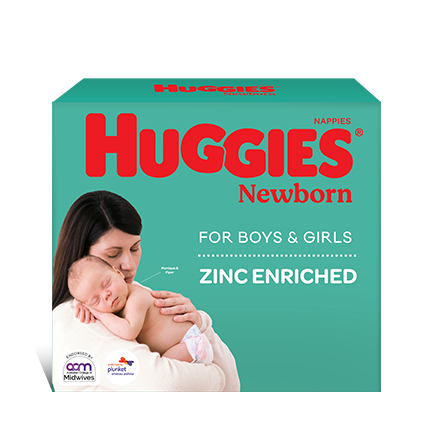By the time they are considering having babies, many women think their days of pimples are over, left behind in those challenging younger years. But unfortunately, pimple breakouts and even acne are common during pregnancy and for some women the condition can become quite noticeable and even distressing.
It is estimated that around 50% of pregnant women will develop acne at some stage during their pregnancy. So if you are experiencing pimple outbreaks be reassured, you are not alone.
But not all women will find themselves stepping back in time to their adolescence. Some women actually report their skin is much clearer when they are pregnant and look as if they are almost glowing. This is generally due to the increase in circulating blood volume, giving a ruddy appearance to the face. It is also helped by the extra oil production which occurs in the skin during pregnancy.
What is acne?
Acne is the term for a skin condition which is characterised by an increase in oil (sebum) production leading to the formation of blackheads and pimples. Ideally, the skin pores remain open and clear, however when acne is present the excessive production of oil can block the pores, forming blackheads and then, a localised infection may develop. Bacteria, combined with sebum, create an infection and inflammatory response. This sequence of events is what leads to the characteristic red and inflamed skin and pustules so typical of acne.
Acne tends to appear primarily on the face but particularly in the T-zone which includes the forehead, the nose and towards the chin. Some women also experience acne on their chest and back, particularly across their shoulders.
Acne is more than just one or two pimples. It can include eruptions at various stages of evolution and resolution. At any one time pimples may be forming and others healing which can lead to a sense of feeling as if there is no end to the cycle of acne.
What causes pregnancy acne?
Excessive amounts of hormones are responsible, in particular oestrogen and progesterone which are the female sex hormones, but also testosterone and androgen, the male sex hormones. These play a direct role in the production of sebum. Changes in the amount of circulating blood sugar and the hormone insulin are also to blame for pregnancy acne. All of these factors have an effect on oil production instead of a regular secretion which is just enough to lubricate the skin and make it supple, there is too much oil and this is what clogs the pores.
Some people still believe that acne is an indication of poor hygiene. But we know this is not true. Although sensible and regular cleansing can help to support an improvement in acne, it is not a cure all for the condition. Many factors influence the likelihood of getting acne during pregnancy and just being more vigilant about washing the face is not the solution.
It can be helpful to know that in most cases, pregnancy acne is a result of high levels of hormones. These are necessary to stabilise the pregnancy and support the baby's growth. They also help to direct nutrition to the placenta which is essential to ensure the baby's survival.
One of the male hormones, androgen, tends to be highest in the third trimester and it is this which can lead to a worsening of pregnancy acne as the pregnancy advances. This can also contribute to excess body hair growth and a thickened appearance to a pregnant mother's skin.
What can help pregnancy acne
- Wash your face with a gentle, mild, fragrance free specific facial cleanser.
- Use warm, not hot, water.
- Consider using an oatmeal scrub to help unblock clogged pores. But make sure you aren t too vigorous. During pregnancy the skin can become very sensitive and react to harsh treatment.
- Rinse skin very well and pat dry with a soft towel.
- Replace your towel and washer several times each week.
- You may want to use disposable soft cotton or fabric pads to cleanse your skin. Don t reuse these and look for disposable ones at the supermarket or pharmacist.
- Ensure your towel is dry and does not stay wet in between use.
- Wash your face twice a day more than this can lead to the skin drying out. However, after exercise you may feel you want to wash your face again.
- Use an oil free moisturiser or facial serum. Avoid using too much as the excess may block the pores.
- Avoid any sun exposure. Heat and sweat can aggravate acne, making it worse.
- Change your pillow case at least twice a week.
- If you have long hair and/or a fringe pull your hair back so it's off your face.
- Wash your hair regularly to remove oil build up.
- Drink lots of water and avoid drinking too much tea/coffee. Two cups a day is fine.
- Speak with your maternity care provider if you are concerned about your acne.
- Be careful about washing your hands, particularly if you tend to touch your face a lot.
- Ensure you have a good, healthy diet. Limit your saturated fat intake, aim for at least five servings of vegetables and two serves of fruit each day and include wholegrains.
What does not help to treat pregnancy acne
- Picking, squeezing or scratching at pimples. This can lead to further infection and scars forming.
- Avoiding all treats in your diet. Chocolates and sweets do not cause acne. However, it makes sense to aim for a healthy diet the majority of time. Occasional treats are fine and will help you stick with a healthy eating plan.
- Covering the skin with makeup, foundation or heavy concealers. Look for cosmetics which are oil-free, low or hypo allergenic, non-comedogenic (blackhead forming).
What can I do to prevent getting acne during my pregnancy?
There is not much you can actively do, other than be sensible about your hygiene and skin cleansing routine. There is no need to be vigorous or go overboard when cleaning your skin. This will only lead to aggravation and may potentially increase the risk of introducing more bacteria into your skin.
If you are generally more prone to pimples or suffer from acne, then you may find that during pregnancy, this becomes worse.
What acne treatments are recommended?
If you are considering using a form of treatment for your acne it is very important that you speak with your maternity care provider and/or your doctor. Some of the more common acne medications are contra-indicated during pregnancy as they can lead to birth defects and complications. Even the topical ointments i.e. those which are rubbed onto the skin rather than ingested (swallowed), can be risky as they can still be absorbed into the mother's bloodstream and cross the placental barrier.
Some doctors will prescribe topical (skin applied) creams and products which may contain low dose antibiotics or a form of drying agent. However, there is still much to be done in terms of research and assessment when it comes to what is known and proven to be safe for use in pregnancy and it is safer, if possible, to avoid any medication or lotions.
Overwhelmingly, the vast majority of health care practitioners are reluctant to prescribe any acne medication in any form to a pregnant or lactating mother. The only time this is considered is if all factors have been weighed up and the mother is so distressed by her pregnancy acne that it assessed to be warranted.
Is my pregnancy acne permanent?
The short answer is no. In the vast majority of women, pregnancy acne resolves after their baby is born. This can take a couple of months but most often there is a slow and steady improvement once the hormones return to their non-pregnant levels.
However, some women who are breastfeeding still experience more than normal breakouts due to the presence of the lactation hormone, prolactin. But again, once this level settles the skin generally returns to normal.
Acne treatments during pregnancy
There are a range of medications which are classified as never to be used by pregnant women. These are considered potentially harmful to the developing baby.
These can generally be classified into a few different categories
- Hormonal therapy
- Tetracyclines
- Topical Retinoids
- Isotretinoin
All of these are considered potent and potentially teratogenic medications which mean they are capable of disturbing the normal growth and development of an embryo and/or foetus. Women who are prescribed these medications should not be pregnant and need to be on contraception and advised by the prescribing doctor not to conceive.
If however, you are taking acne medication and have conceived, it is important that you speak with your maternity care provider, your doctor and/or a pharmacist immediately and they will advise you on what you need to do.
- Check The National Prescribing Service website for more information on medication and pregnancy
- The Royal Women's Hospital Victoria
- Speak with your local pharmacist.
Last Published* May, 2024
*Please note that the published date may not be the same as the date that the content was created and that information above may have changed since.























